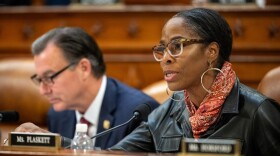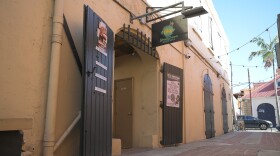ST. THOMAS — The Virgin Islands Professional Charter Association is calling on the government to implement reciprocal licensing fees for British Virgin Islands-based vessels operating in territorial waters following the BVI’s implementation of a new fee structure with an unlimited access fee that is 29 times higher than the original amount.
The annual fee for foreign-based vessels seeking unlimited access to BVI waters jumped to $24,000 from the previous maximum fee of $800 dating back to 1992 following an amendment to the Commercial Recreational Vessels Licensing Act that took effect June 1. The annual fee for day charter operators increased to $8,500 from $200. Meanwhile, the new fees for BVI-based vessels range from $800 to $4,000, depending on vessel size.
VIPCA, in a statement issued last Wednesday, criticized the BVI government for implementing what it called a “short-sighted and unfortunate” increase in licensing fees. Without immediate action from the USVI government, VIPCA stressed that more businesses and jobs would be lost to the BVI.
The nonprofit organization that is dedicated to protecting the territory’s charter yacht industry is now calling on the USVI government to strike back through reciprocal measures that would impose comparable licensing fees and stricter enforcement on BVI-based vessels operating in territorial waters.
“If left unaddressed, these policies will continue to drive business out of the USVI, resulting in job losses, reduced tax revenue, and long-term damage to the territory’s reputation as a premier yachting destination,” VIPCA said in its statement.
Despite the pressure from the charter industry, Governor Albert Bryan Jr. defended the BVI government’s actions as reasonable and economically necessary. The governor said he would not impose reciprocal fees.
“We met with the BVI on several occasions, and we negotiated what we think was fair,” Bryan told WTJX. “It’s only fair that they get paid for people to come into their waters. They’re really worried about their charter industry.”
Bryan also expressed sympathy for the BVI’s economic pressures, noting the British territory lacks federal support structures like the Federal Emergency Management Agency, unemployment insurance, and other U.S.-backed aid mechanisms.
“They need to make their economy work,” he said.
Kennon Jones, VIPCA executive director, told WTJX in response to the governor’s stance that the Association was disappointed that the government is not standing up for the local charter industry.
“At the end of the day, it’s going to mean lost jobs, lost income, and will hurt the overall economy locally,” he said.
The Association noted in its statement that the marine industry supports more than 5,000 jobs and puts over $166 million into the local economy. For every vessel that relocates to the BVI or day charter business that might close, VIPCA noted it is not only that direct business that is lost. The Association stated that the wide network of local businesses that support and benefit from the industry would also suffer, including grocery stores, mechanics, florists, cleaning services, marinas, boat yards, electricians, HVAC (heating, ventilation, and air conditioning) technicians, restaurants, and bars.
Jones said the territory has already lost three charter companies to the BVI, including &Beyond Yacht Charters.
Collin Steyn, &Beyond Yacht Charters CEO, said he is relocating his fleet of 21 vessels to Virgin Gorda because it would not be economically feasible to maintain his operations out of Yacht Haven Grande on St. Thomas like he has for the past five years now that the BVI government has implemented its new fee structure. Steyn said he would still be permitted to operate charters in Virgin Islands waters on a limited basis as a BVI home-based operator. He said, however, that 99% of his clients request charters in BVI waters, attributing the demand for the destination to aggressive marketing.
“It makes sense to be based where the business is in some respects,” Steyn said. “And so, were there a bigger demand for chartering in the USVI, I think there would be a much different discussion.”
The implementation of reciprocal licensing fees was not the only request VIPCA had of the government.
VIPCA also called on the government to ensure BVI vessels visiting the territory are in full compliance with applicable laws, including that all foreign mariners are appropriately credentialed and meet U.S. Coast Guard regulations, have up-to-date safety certificates, provide proof of having cleared U.S. customs before being allowed to embark or disembark passengers, and provide proof of arrival and departure reporting. Jones said enforcement of the requirements in territorial waters is not absent but could be done more often.
Howard Forbes Sr., director of the Division of Enforcement at the VI Department of Planning and Natural Resources, said there is a mechanism in place to ensure mariners comply with the applicable laws and regulations. He noted, however, that limited staffing and occasional mechanical issues with enforcement vessels hinder DPNR’s ability to patrol the waters. He said the department has teamed up with other agencies in the past and is preparing to do so again to increase the enforcement presence. Those partners include the VI Police Department’s Marine Unit, enforcement officers from the VI Department of Licensing and Consumer Affairs, and the U.S. Coast Guard.
“The department had several operations with other agencies within the government to rectify the problem with these vessels coming in from the BVI,” Forbes said, adding that the operations are spearheaded through the Office of the Governor. “The department is also limited with personnel right now. In fact, we’re planning to start the operation again.”
This article has been updated to clarify the annual fee for foreign-based vessels seeking to operate day charters in the BVI increased to $8,500 from $200 following an amendment to the Commercial Recreational Vessels Licensing Act that took effect June 1.















